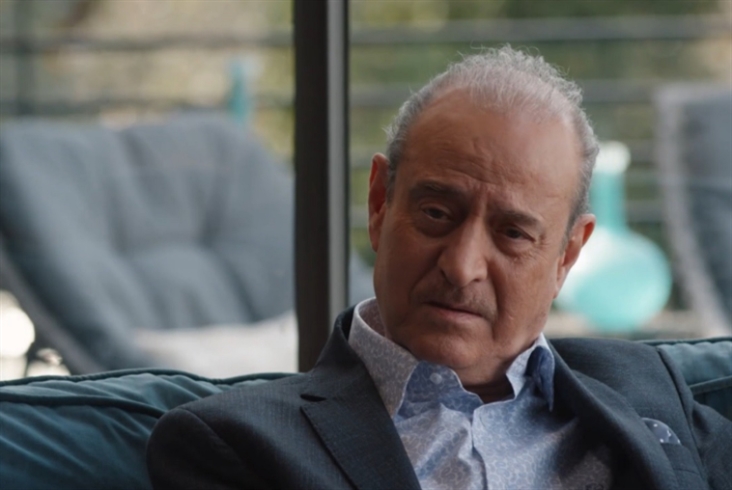The sequel tells the story of Amer Badran (Bassam Kussa) who returns to avenge those who hurt him in the past, like officer Jad Harb (Bassem Mughnieh), who left the police force and started working as a security guard in a mall. Of course, Badran continues his work in smuggling, which the viewer does not know the nature of, or even his role in the operation, except that he works with a major criminal figure nicknamed “Don”. Meanwhile, Badran tries to sabotage the relationship between Jad Harb and his wife Rama (Natasha Shufani) and develops an affair with Stephanie Saliba, who tries to get close to him for reasons of her own. The real crisis of the series is the written text, as we have already mentioned: we start, for example, with names that do not resemble anyone. The mistake of Lebanese soap operas since the 1990s, when the names “white” do not refer to any “sect, religion or color”, which is not justified in societies of a certain nature. This “whiteness” leaves the series with names without color. The same whiteness is applied to the characters who appear flat, superficial and often goofy: despite the enormous effort put into the role by the hard-working Lebanese actress Stephanie Saliba, she cannot be “meaningful”. The shallowness of the character’s writing influenced Saliba’s acting. For example, what is his motive for contacting Badran? No one knows. Why are you happy, sad or something? No one knows; And measure. Amer Badran’s character seems contradictory in many places, although Bassam Kussa’s excellent and professional performance adds to his credibility. It’s safe to say that if it wasn’t for his presence in this role, the series would have failed badly. The character is written quickly and without logic. The characters walk the same way in the way of writing, and there is no doubt that one of the funniest roles is “Don”. In the story, he is an Italian or European “mafia boss”. However, he speaks in broken Arabic, why? No one knows. On the other hand, his assistant talks to him as if he were his “boyfriend”, although according to the previous dialogue in another scene, the “Don” is described as “scary and scary, not to be played with”. Of course, one can talk for a long time about a text that has not helped anyone and does not interfere with their work; And this made the series difficult, if not for the game of some of its characters. The dialogues written are often like TikTok clips filled with the usual repetitive clichés.
The dialogue often sounds like excerpts from a Tik Tok show full of clichés.
Performance, here’s the stall: Bassam Kussa, as always, seems to be one of the few actors who can always play any role. The actor who gave us the role of “Al-Adashari” in the popular TV series “Bab al-Hara” can easily be evil, kind and loving at the same time, and the audience will believe in him, no matter how little the paper. is, or it is poorly written and lacks attention. The Syrian actor stands out as one of the most important Arab performers, and whatever scene he is in, he gives his soul to it.
The dialogue often sounds like excerpts from a Tik Tok show full of clichés.
Stephanie Saliba is one of the best Lebanese performers, if not the best, after her colleagues Carmen Lebbos, Christine Choueiri, Takla Chamoun. He surrendered wholeheartedly and ignored his good looks, focusing on the quality of his performance. Saliba’s importance is emphasized by the fact that he was able to perform despite the fact that the place, the quality of the paper and the way it was written were not good enough for him. At the same time, a bad script affected the performance of other actors, and the abilities of Ale’s pioneers did not appear; He was filled with tea and coffee sessions and gossip that he couldn’t handle. The same goes for Carmen Lebbs, who also made great efforts to improve her role’s range of motion, but she remained stuck in a stereotype she couldn’t break. However, this does not negate his skill and great performance ability. Basem Mughnie, the weakest performer in the series, did not find himself as a performer during all these long years: the same expressions, movements and voice remained on his face. Is the problem in the text or in its monotonous and repetitive execution? As for the actors of the second and secondary roles, they embodied their characters as if they heard “memorization”!
Director Marwan Barakat does not move his cameras directly outside the limited frames. There is no direct merit from the director, his shots remain classic, typical for this type of series. Add a stretch, because the show could be ten episodes, not more.
* “Challenge: Secret 2” in “Witness”
Source: Al-Akhbar
